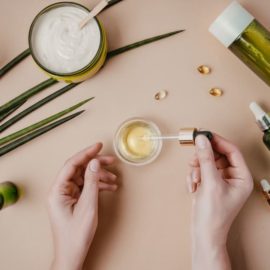Botanical beauty has existed for centuries. Derived from plants, flowers, herbs, nuts, fruits, and seeds, botanicals were used in beauty treatments from ancient Egypt to imperial China. Today, their popularity endures: according to Naturkosmetik Konzepte, sales of natural beauty products accelerated from +5.9% in 2018 to +9% in 2019 in Germany alone. Although Germany is blazing the trail, other European nations are following suit.
However, the terms ‘natural’ or ‘botanical’ aren’t defined in law. Despite this ambiguity, there is a move towards creating a legal definition of the terms ‘natural’ or ‘naturally-derived ingredient’ as they pertain to beauty and personal care. In Washington DC at the end of last year, Representative Sean Patrick Maloney presented the Natural Cosmetic Act which sought to outline the legal definition of ‘natural’.
Moreover, consumers are becoming more discerning. Last year, 29% of adults researched a beauty brand to find out if it is eco-friendly (Mintel, 2019). In light of these legal and market pressures, botanical beauty brands have to work harder to prove their green and ethical credentials.
Content
Upping the ante in botanical beauty
The botanical beauty trend is gaining pace. In 2019, 46% of all BPC products launched in the UK carried ethical and environmental claims, which was up a staggering 27% from 2015. Equally, of the 89% of consumers that bought regular beauty products in that year, 54% chose eco-friendly labels. In the same study, 35% of adults paid more for an eco-friendly product (Mintel, 2020).
Certainly, the natural beauty segment is experiencing exponential growth. However, with the volume of new market entrants – not to mention an increasingly discerning consumer and potential legal obligations – it’s becoming more difficult for natural or botanical beauty brands to differentiate themselves from the competition. This is why natural beauty and personal care brands need to think about how they are eco-friendly in the round.
Why botanical beauty and ethical supply chains go hand-in-hand
Instead of merely using natural ingredients, brands need to consider how they engage with suppliers and sourcing. As consumers become increasingly curious, brands need to ensure every stage of their supply chain is ethical. Currently, 65% of younger millennials think brands should engage with social issues – which means that initiatives like Access to Benefit Sharing projects are crucial (Mintel, 2020).
Such projects, which include schemes like the Nagoya Protocol, set standards to ensure equal and fair access to the benefits of natural resources. These initiatives aid community development and protect biodiversity, ensuring the ethical sourcing of botanicals. Moreover, participation in these projects and the relevant certifications quickly and clearly communicate a brand’s commitment to ethical practices.
Provital’s commitment to ethical sourcing
Provital knows that as an industry, we need to go further. This is why we are proud to be the first cosmetics ingredients producer to be fully compliant with the Nagoya Protocol on biodiversity and benefit-sharing. But we don’t stop there; we also collaborate with community-driven organic farming projects in Queretaro, Mexico, and closer to our home in Vall del Tenes, Catalonia. With these partners, we ensure our botanical beauty extracts meet the highest organic standards – while supporting the communities that grow them.
No comments yet
There are no comments on this post yet.





Leave a comment